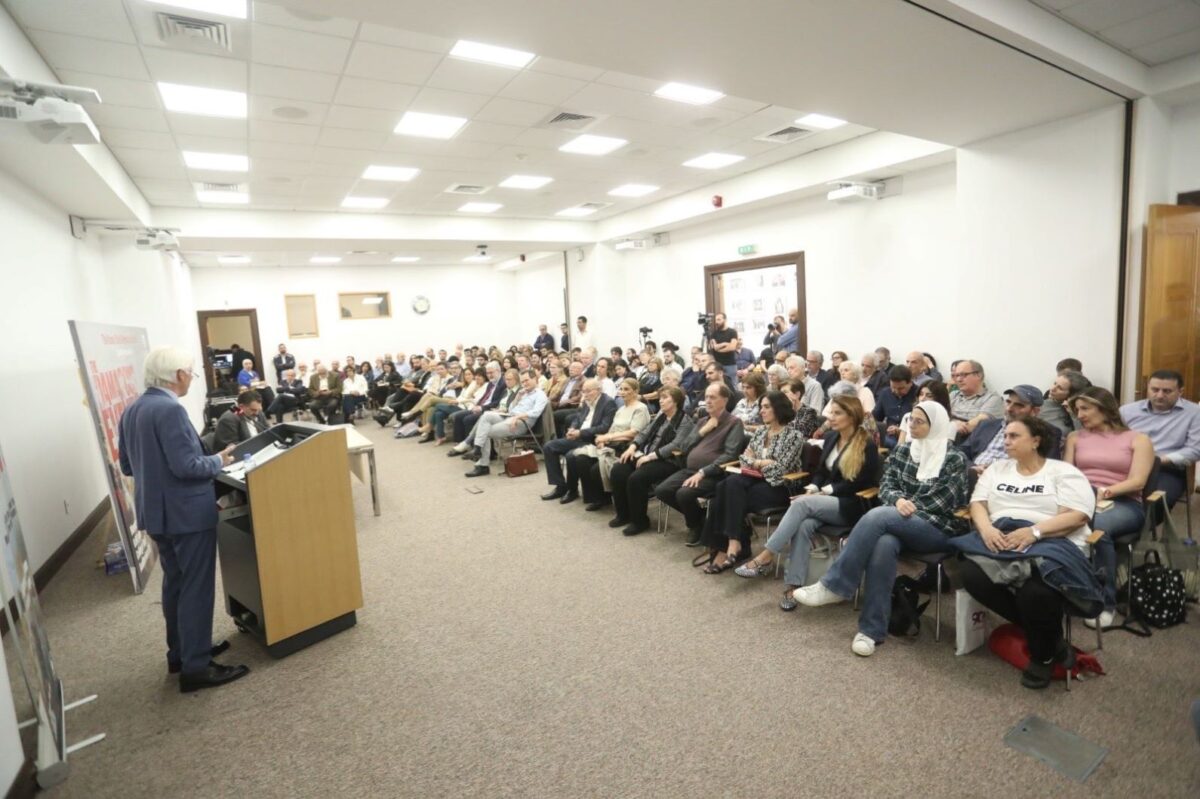
Eugene Rogan Delivers the Annual Kamal Salibi Memorial Lecture at the American University of Beirut
In a packed auditorium, the American University of Beirut (AUB) hosted the annual Kamal Salibi Memorial Lecture, delivered this year by renowned American historian Eugene Rogan, Professor of Modern Middle Eastern History at the University of Oxford. His lecture was titled: “The Damascus Events of 1860 and the Making of the Modern Middle East.”
The event was opened by AUB President Dr. Fadlo Khuri, who welcomed the speaker and longtime friend of the late Kamal Salibi, expressing the university’s pride in hosting one of the world’s foremost historians of the Arab world. Dr. Khuri praised Salibi’s legacy, calling him a “rare scholarly figure” and a model of intellectual integrity.

Eugene Rogan Delivers the Annual Kamal Salibi Memorial Lecture at the American University of Beirut
In his introductory remarks, Dr. Makram Rabah, historian and assistant Professor at AUB, described Rogan as a “writer of memory” who “weaves together archival research, narrative, facts, and human depth.” He noted that Rogan’s book on the Damascus Massacres of 1860 “is not only about the past, but also about a present torn between trust, betrayal, and reform.”
Rogan’s lecture revisited the tragic events of Damascus in July 1860, drawing on vivid historical testimonies from figures such as Judge Mohammad Sa‘id al-Istuwani, physician Mikhail Mishaqa, and Mohammad Abu Saud al-Husaybi. He recounted the outbreak of sectarian violence that led to the massacre of over 2,500 Christians in a single day and the displacement of thousands—marking a turning point that exposed the vulnerabilities of the Ottoman Empire under growing European economic and political pressure.
Rogan also examined the Tanzimat era of the Ottoman reforms that preceded the events, which triggered deep societal divisions in Damascus’s multicultural fabric. He highlighted the role of Emir Abdelkader al-Jaza’iri, who sheltered hundreds of Christians in his home, and the Ottoman state’s response through the dispatch of Ahmed Fuad Pasha to punish perpetrators and provide restitution to victims.
During the Q&A session, an audience member suggested that “the Damascus massacre paved the way for modern Beirut.” Rogan responded by acknowledging Beirut’s rise prior to 1860, but emphasized that Lebanon’s political system remained rooted in sectarianism, whereas Syria gradually evolved toward a citizenship-based, nonsectarian model.
Rogan concluded by affirming that history is not only a record of the past but a lens on the present and future, warning that the events of 1860 remain a stark reminder of the fragility of coexistence when not grounded in justice and equality.
The full lecture is available at the following link: https://youtu.be/r0dz_j0KnrA?si=aMndEa0QxkVKZoOW







